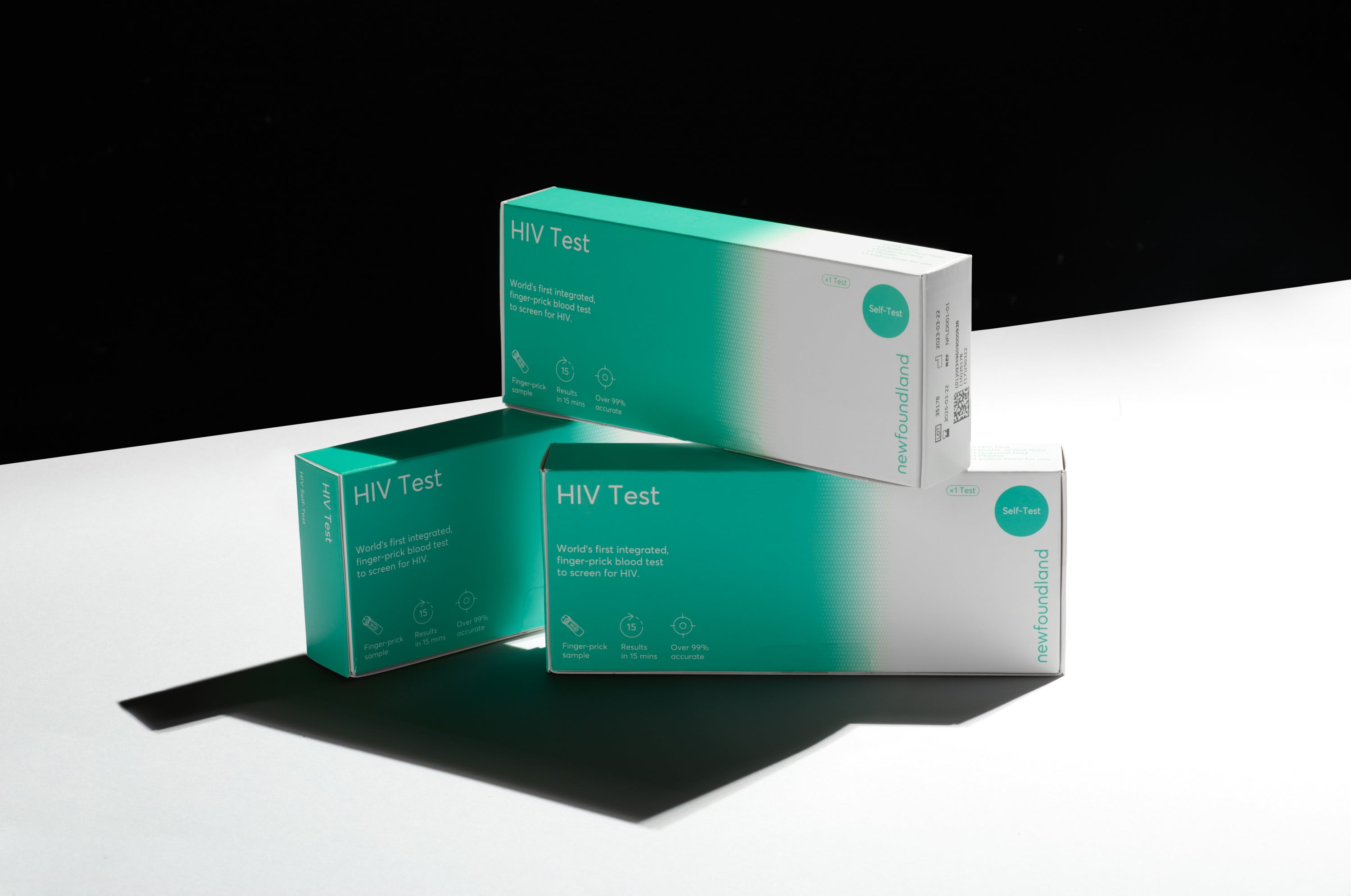First at-home HIV tests launched in Tesco as sufferers say stigma continues
Study found Britons believe sharing drinks and cutlery with a HIV positive person can cause transmission.

The first rapid at-home HIV testing kit will be available from Tesco stores
The first at-home HIV tests are set to be launched in Tesco as sufferers say stigma around the disease persists.
More than 10 million Britons would not knowingly want to be friends or work with those living with HIV, a new study has claimed.
Healthcare company Newfoundland Diagnostics looked into the perceptions and behaviours towards people that are HIV positive, and found that nearly 10% of participants believe the virus can be passed on by drinking from the same glass.
The research also found 7% of people believe it can be transmitted by sharing cutlery, and 3% thought it can be spread by touching hands with an HIV positive person.
Nearly four out of five heterosexual people don’t believe their partners are most likely to be HIV+. This is despite recent data from the UK Health Security Agency (HSA) showed that for the first time in a decade, there are higher rates of new diagnoses for the virus among heterosexual individuals.
Author and activist Dan Glass was diagnosed with HIV in 2005 at the age of 21
Speaking to The Independent, 40-year-old activist and author Dan Glass said: “I actually come across more heterosexual people being diagnosed than homosexuals. We call it the second silence - the first silence being in the 1980s and 90s.
“The second silence can be put down to three reasons - cuts to services, thriving transmissions amongst certain demographics like heterosexual people and LGBTQ migrants who are scared to go to the doctors, as well as the stigma from the 80s.”
After being diagnosed HIV positive in 2005 at the age of 21, he spent the following five years in a “complete mess”, before involving himself in grassroots organisations and groups to raise awareness of the virus.
Since becoming involved in ACT UP!, he has been recognised as ‘Activist of the Year’ with the Sexual Freedom Awards and has founded Queer Tours of London. “It’s really been a case of turning something really difficult into somethinglife changing,” he said.
The company say it provides a more than 99% accurate diagnosis in 15 minutes.
“I didn’t know anything about it and I internalised a lot of stigma,” he said. “Being a Section 28 baby and the soical landscape at the time, we weren’t taught about sexual health and I was riddled with self-shame.”
Until 2003, Section 28 of the Local Government Act 1988 prevented schools and authorities from “promoting homosexuality”, which further enhanced stigmatisation and discrimination around HIV sufferers.
In response to the survey, which found that 15% of respondents would not want to work with a HIV positive employee, Mr Glass said: “We’re expected to live within fear of each other. I understand why people are fearful but by only living with fear, you’re going to be your own worse enemy.”
The survey comes as the first at-home HIV tests were launched today in Tesco stores across the country, ahead of World Aids Day this Friday.
Now people will be able to take a finger-prick blood test to screen for the virus, which detects antibodies to HIV Virus Type 1 (HIV-1) and HIV Virus Type 2 (HIV-2) in blood.
Newfoundland Diagnostics, the company which launched the test, say it provides a more than 99% accurate diagnosis in 15 minutes.
“I think it’s really great news, it’s brilliant,” Mr Glass aid. It’s great in terms of supporting the normalisation of the virus, but I hope there is guide to help people with support groups.
“Being concerned and scared is utterly understandable, but there will be an organisation available in their local community which can provide healing and connection.
“AIDS is not over until we support those who are at the sharp end of the knife, so supporting those who don’t have access to services such as trans rights and migrants rights.”
Frederick Manduca, co-founder of Newfoundland Diagnostics, said: “These misconceptions about HIV are deeply troubling and underscore the crucial necessity for comprehensive education and for Brits to know their status.
“With the medical advancements available today in the wake of the AIDS epidemic, we’d hope as a nation to have made significant strides in understanding HIV and those it affects. Unfortunately, these findings reveal a lingering cloud of misinformation that continues to shroud perceptions of HIV.
“By placing easily accessible HIV self-tests on supermarket shelves, we;re offering more than a diagnostic tool; it’s about fostering open conversations, eradicating the stigma still surrounding HIV, and confronting the misconceptions faced by individuals living with HIV.
“This accessibility serves as a prompt to encourage dialogue and education, chipping away at the barriers and misconceptions those with HIV encounter daily.”
Subscribe to Independent Premium to bookmark this article
Want to bookmark your favourite articles and stories to read or reference later? Start your Independent Premium subscription today.

Join our commenting forum
Join thought-provoking conversations, follow other Independent readers and see their replies